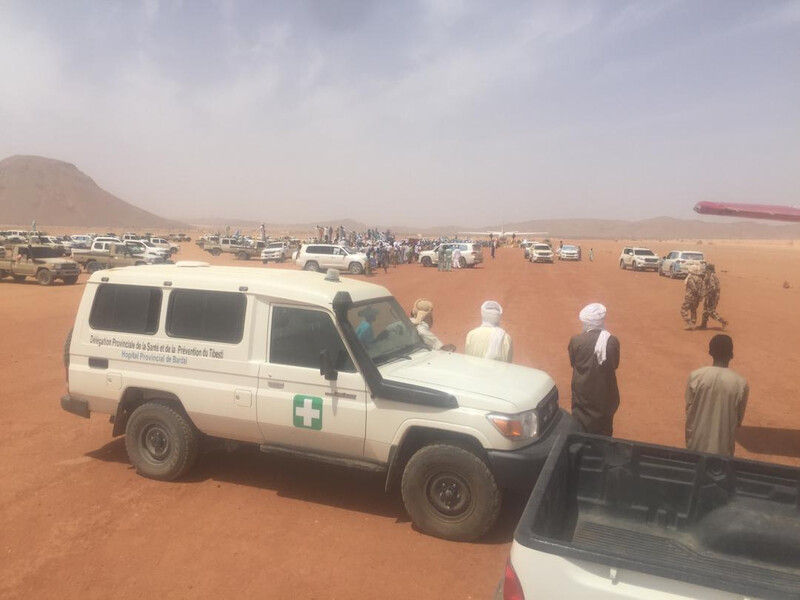Changing lives in Chad’s extreme north
- MAF Singapore
- Jul 12, 2024
- 3 min read
Story and Photos by Philemon Schelling
MAF flights help an organisation serving the Teda people to bring in valuable short-term workers to make more progress with their language work and health services.

The three-to-five-day journey across the Sahara Desert is tedious. Only 200km of the 1700km from Chad’s capital N'Djamena is black-topped road, then the trails disappear into sand. Once in the mountainous Tibesti region the bumpy drive over hardened lava can take as long as walking does. Vehicles often break down and then someone must go for parts while the others wait, sleeping on the sand. There is nowhere else.
It is in this area of Chad’s extreme north, near the Libyan border, that Mark Ortman, director of Association Pour le Développement et la Paix (ADP), and his wife Cheryl have been working since 1994 to serve the Teda people who live in a huge area including Chad but stretching into southern Libya and eastern Niger.

ADP does valuable work with the Teda language and its alphabet, while also running a sports programme and doing medical work at the Bardai government hospital, one of the best equipped in Chad.
Mark says MAF flights from N'Djamena support the organisation’s work because families serving for short spells could not be effective without the fast, safe journey by aircraft.
“If we had not had MAF we never could have short termers come up to help us push our programmes forward,” he says.
“It is nice to inject new life from time to time and the fact that we can run flights up and down, and move people around allows us to have a big team.

“We can continue to survive without MAF, but we cannot have a programme which touches so many lives, and we can’t have so many people working with us because there are people who want to help but how can they help if you can’t get them up there. And that is where MAF comes in.”
ADP developed a Teda alphabet and began to publish in the language by 1998, but the books were banned because it used the Latin alphabet and not Arabic. After the Gaddafi regime fell in Libya, the Teda were excited about reading and writing in their own language and embraced ADP’s language programme. The Teda value their language, which has now become part of the national curriculum.
“Once they have the ability to read and write in their own language rather than a language they don’t speak, like French or Arabic, all of a sudden something happens, and they embrace it,” Mark says.

Apart from using MAF for medical and medevac reasons, MAF flies out personnel who can repair equipment. Bringing equipment over land to N’Djamena takes days and could cause further damage. It was far more practical and efficient to take an x-ray technician up to the hospital, where he installed a digitizer and printer and got a state-of-the-art but unused x-ray machine running in one day.
Dental teams from the US, able to come out for only a week and a half, treat patients in Bardai for a week, with MAF dropping them off and picking them up. Patients, short term workers, and staff coming out on short breaks are grateful to the MAF flights that get them there, comfortably, within six hours.
“We don’t focus on only one part of this. People are people and they have needs,” Mark explains. “We now have a big team in Bardai – doctors, medical workers, a water project.”
MAF pilots such as Becki Dillingham have also connected well with Teda culture and the community.
“Becki as a woman pilot has made a big impact because people only knew from movies that women could fly planes. When they see her and know that she has children, they meet a star,” Mark says. “My wife took her to different homes, and it helps the women understand that these are things that they can do too. Being a woman does not mean you are regulated to just a certain part of life.
“We are in Bardai to show light, for people to see our good works, and by that light see a whole new way of looking at life, and that is what is happening at the MAF airstrip.”






















Comments